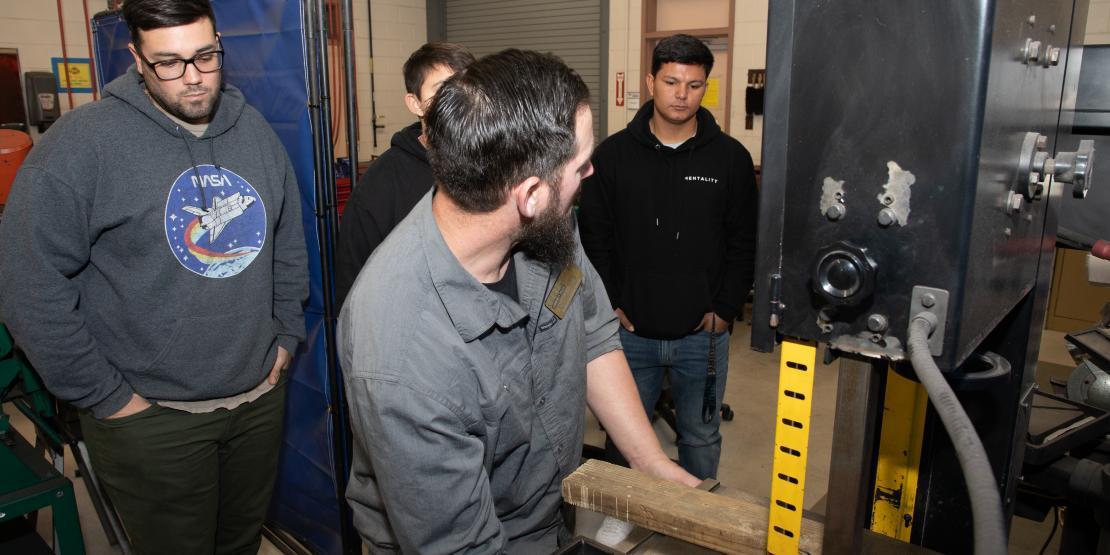Apprenticeships are employer-based programs that help workers learn specialized skills needed in today’s work environment, combining on-the-job learning with related classroom instruction. Students earn nationally recognized credentials, while employers develop a talented team and close the skills gap. While many people start apprenticeships immediately after graduating from high school, they may also work well for veterans leaving active-duty military service, those looking to change careers, or people whose jobs are being replaced by technology.
Examples of the apprenticeship opportunities offered by employers in North Carolina include those listed below, as well as many others:
- Advanced manufacturing
- Energy (line workers, etc.)
- Building trades (welder, electrician, plumbing, construction)
- Health care (surgical technician, LPN, pharmacy tech, etc.)
- IT & cybersecurity
- Public safety (police, fire, EMS)
- Logistics & transportation
- Finance & insurance
- Hospitality
Types of Apprenticeships
Both employers and apprentices benefit from a formal apprenticeship program. Apprenticeships offer students paid work-based learning and associated classroom learning as they earn nationally recognized credentials. Employers benefit from a well-trained workforce, improved loyalty, and reduced turnover. Learn more about the benefits for students and employers.
There are multiple types of apprenticeships:
- Pre-Apprenticeship is for high school students who have an interest in the specific field and want to work for the employer on a full- or part-time basis. The pre-apprentices are paid and are often offered full apprenticeships upon graduation from high school.
- Registered or full apprenticeships are for students who have selected their career pathway and want to train in all aspects of the occupation as they work full- or part-time. Registered apprenticeships also provide a wage scale that increases based on experience and skills learned.
The word “internship” is often mistakenly used in place of apprenticeship, but they are not the same. Internships are typically short-term offerings that allow students to explore occupations. Employers offering internships often do not have structured training in place or positions to offer interns upon completion of their internship. Interns also do not receive nationally recognized credentials upon completing the internship.
Registered Apprenticeships Pay Dividends!
85%
170%
63%
2x
3.2 Years
70%
$36,100
$10,500
Source: North Carolina Apprenticeship Program Survey, Labor and Economic Analysis Division (LEAD), North Carolina Department of Commerce
Large and small companies across North Carolina and around the world use apprenticeships to train their employees and build a skilled workforce. Some of the companies that have offered apprenticeships through Craven Community College include: Atlantic Veneer, BSH, Carolina Technical Plastics, Chatsworth Products, City of New Bern, FRC East, Tandemlock, and Veneer Technologies.
Scholarship Opportunities
If you're unemployed, underemployed, or justice involved, you may qualify for Building Bridges, a partnership between Craven Community College and the Food Bank of Central & Eastern North Carolina. Supported certification programs are Forklift and Truck Driver Training (CDL). Get more information.
Contact Information
Apprenticeship Development
Brock Administration Building
New Bern Campus
252-638-7283
